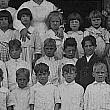
Camp Blodgett's Babies Welfare Guild
by The Babies Welfare Guild
published: April 7th, 2009
The history of the Babies’ Welfare Guild is marked with generosity and love. Indeed, the very purpose for which it was organized stems from Mrs. Grace Logie Dillard’s overwhelming desire to provide aid to individuals in need. Upon the birth of her first child, she was laden with anxiety due to her baby’s increasing frailty. Lack of proper medical assistance and equipment within Grand Rapids contributed to her angst. It was in this reality that her concern grew for all mothers and children whose situations were similar to her own. As a result of this concern, Mrs. Dillard committed herself to the care of frail, undernourished babies, babies with disabilities, and the education of mothers with premature babies. From this commitment also grew two ideals by which the Babies’ Welfare Guild holds fast – unselfish aid to those in need and devotion to the highest standards of altruism. (Find more information to your right in Related Items)
The Babies' Welfare Guild, introduced in 1912, replaced the Young Ladies' Auxiliary of the Children's Home--in 1908 it became the D.A. Blodgett Home for Children--as a fund-raising arm for the Home. Their main focus was providing the funds to distribute breast milk to undernourished infants within the Home and Grand Rapids. Still in existence today, it remains one of the oldest women's guilds in Grand Rapids.
A camp program was introduced as an extension of the D.A. Blodgett Home for Children at the suggestion of two nurses there. Miss Emma Lindquist, a nurse at the Home, guided the search for a location and ultimately identified an empty hotel at Stony Lake, near Shelby and close to Lake Michigan. Having fallen into disuse after only two years of service, the owner of the hotel was told of the homeless, and often motherless, children under the care of the Home, and he graciously donated the use of his hotel.
The opening of the camp was not without its hardships. Delivery of beds, nursery chairs, army cots, blankets, and other accessories to furnish the camp's new building was delayed by harsh weather. Miss Emma Lindquist, late in her arrival, was unable to clean and prepare the hotel. The people of Stony Lake hurried to the building with brooms, mops, and pails, and began a concentrated effort to make it ready. The children arrived a day later, by train and horse-drawn carriage, to a still unfurnished building, but were graciously taken into the homes of the community for the evening.
The community of Stony Lake continued to pour out their support for the camp throughout the summer with donations of fruits, vegetables, chickens, and ice cream. The children's daily activities included afternoon walks, swimming sessions, evening sing-a-longs, and weekly trips to the candy store. Also, Sunday morning church services were held in the shade of a big oak tree, and the children sang hymns and other tunes that contributed to these services. The children enjoyed their six weeks on the lake.
In 1921 the Babies' Welfare Guild extended its fund-raising arm to support the new camp, situated at Lake Michigan, by contributing buildings and equipment. Their first donation was $250 towards the purchase of a new car. Through their generosity in the following years, the Camp was able to develop a Mess Hall, Hospital, the Recreation building, and two sleeping units. The Guild was often referred to as the "Big Sisters of Camp Blodgett," because of their close, charitable relationship with the camp.
When Camp Blodgett was approached in 1934 by the state to open the Camp to other children within the city or its surrounding areas, they graciously agreed. That summer, sixty-two state children participated in the camp program, along with twenty-six children from the D.A. Blodgett Home. Thus, Camp Blodgett is, at times, associated with the Michigan Children's Aid.
In 1939 the Camp became a member of the Community Chest which, at the time, provided the monies necessary for basic functioning of the Camp such as lighting, heating, salaries, and provisions. In 1951, Camp Blodgett became an independent agency under the auspices of the United Fund, or United Way.
The Guild's most prominent fundraiser, The Pink Ball, was first held in 1915 at the Coliseum. It became an annual event dedicated to the interests of the D.A. Blodgett Home. In 1942, in addition to the Pink Ball, the Guild began hosting an annual style show to raise support for Camp Blodgett and its programs. Over the years, many prominent Grand Rapids women added their hand to the event. Amongst them was Mrs. Gerald R. Ford who narrated the 1961 style show.
Camp Blodgett has constantly been inventing and reinventing their role within the community over the course of their existence. As recently as 2000, Camp Blodgett expanded their influence by offering a year-round program to children over the age of thirteen. The program encourages older children to get involved in their individual communities, to dedicate themselves to their academics, and to continue to use the skills and abilities they acquired during their time at Camp Blodgett.
Nearly 500 children, mostly from lower income and single-parent families, participate in Camp Blodgett's summer camp program each year. Through a variety of activities offered at Camp Blodgett, such as hiking, biking, swimming, horseback riding, arts and crafts, and sports events, children learn their sense of value, and the value of those around them.
Dedicated to promoting self-confidence, a love of learning, and the capability to achieve, Camp Blodgett served, and continues to serve children, by providing them with a safe, enriching community. Its program is designed to develop close relationships between campers and positive adult role models while sharing significant, life-changing experiences.
The Babies' Welfare Guild's dedication and commitment to the children of Grand Rapids and its surrounding areas has also remained constant over the years with its generous outpouring of love and support. For thousands of children, Camp Blodgett has been a place for growth, friendship, and fun, but also a place of renewal and change.
Perhaps the song of Camp Blodgett best describes its spirit and reason for being, "Pines and sands and skies of blue, Camp Blodgett will stay close to you. Many friendships you will find. Open your heart, your soul, your mind. Camp Blodgett you will always be our home away from home. We’ll always have your memories wherever we may roam."





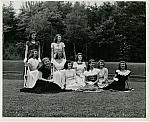
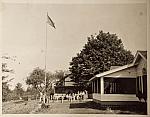
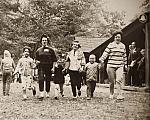
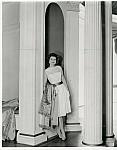
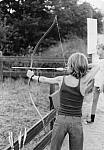
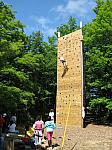
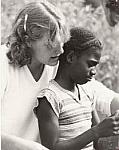
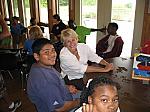
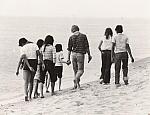
 facebook
facebook